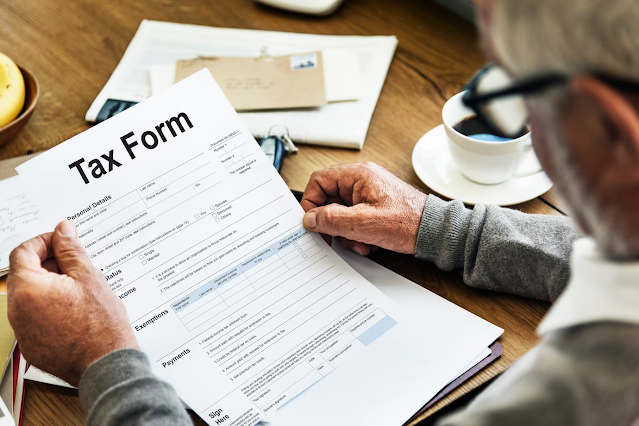Moving to Australia is a significant step filled with challenges and opportunities alike. Among the critical aspects to navigate as a new migrant is understanding the Australian taxation system. Even worse, it’s complex, especially for those who aren’t native English speakers.
Fortunately, with a little bit of knowledge and guidance, you can quickly get up to speed with the basics of Australian taxation. This guide aims to provide you with a brief overview of what you need to know about taxes in Australia.
 |
| Image by rawpixel.com on Freepik |
Seek Professional Help
One of the first steps you should consider as a new migrant is seeking professional help with your tax affairs. As mentioned, navigating the Australian tax system can be daunting, particularly if English isn’t your first language.
Consulting with a tax agency from your home country with expertise in Australian taxation can provide a familiar approach to the complex world of taxes. These agencies often have bilingual staff who can explain the nuances of the Australian tax system in your native language, making the learning curve less steep.
Alternatively, contact the Australian Taxation Office (ATO) directly with the help of an interpreter. The ATO offers free interpreter services and can guide you through your tax obligations, how to file a tax return and any entitlements you may be eligible for.
Hiring a professional ensures you’re not only compliant with Australian tax laws. It also helps you understand potential tax benefits and can prevent costly mistakes from misinterpreting tax rules.
Hiring an accountant, especially one familiar with the tax landscape in your new area, can also be incredibly beneficial. For example, if you've moved to Newcastle, searching for an “accountant newcastle” can connect you with a professional who not only understands Australian taxation but is also acquainted with any local nuances that might affect you.
The advantages of enlisting the help of a local accountant include gaining insights into specific tax deductions you may be eligible for, understanding how to structure your finances to minimize tax legally, and ensuring that all your tax filings are accurate and timely. This approach not only helps in avoiding potential penalties but can also significantly reduce the stress associated with tax time.
Understand Your Tax Obligations
As a new migrant, your tax obligations in Australia will depend on your residency status for tax purposes. This status affects how you’re taxed on your income earned both within and outside Australia.
Generally, Australian residents are taxed on their worldwide income, while non-residents are only taxed on their Australian-sourced income. Determining your residency status is, therefore, a critical first step in understanding your tax obligations.
It's also important to know the income tax rates that apply to your situation. Australia has a progressive tax system, meaning the more you earn, the higher the rate of tax you'll pay on your income. Being familiar with these rates and the tax-free threshold can help you budget more effectively and understand how much tax you should expect to pay.
Familiarize Yourself with the Goods and Services Tax (GST)
The Goods and Services Tax (GST) is a broad-based tax of 10% on most goods, services, and other items sold or consumed in Australia. As a consumer, you pay GST on most purchases, but as a business owner, you may also need to collect GST.
Understanding how GST works is particularly crucial if you plan to start a business in Australia. Registering for GST, issuing tax invoices, and claiming GST credits are all integral aspects of efficiently managing your business's tax affairs.
Additionally, knowing which items are GST-free (such as some foods, healthcare, and educational services) can help you make more informed decisions as a consumer and a business owner. This knowledge can assist in budgeting and financial planning, ensuring that unexpected tax expenses don’t catch you off guard.
Keep Accurate Records
Like in any country, the Australian government recommends new migrants keep accurate and up-to-date records for tax management. This includes records of all income earned and expenses that may be deductible.
Here are some tips to help you maintain your financial records accurately:
1. Use Digital Tools. Take advantage of digital tools and apps designed for financial management. Many of these tools can categorize expenses, track income, and even store digital receipts, making it easier to keep your financial records organized.
2. Maintain Regularity. Update your records regularly instead of waiting until the end of the financial year. This habit prevents the accumulation of paperwork and reduces the risk of forgetting to record transactions.
3. Know the Retention Period. Be aware of how long you need to keep your records. In Australia, you're required to keep your tax documents for five years from the date you file your tax return. Some documents, like those related to real property, may need to be kept longer.
4. Secure Your Records. Ensure your records are kept in a secure place, whether in digital form or on paper. Use password protection for digital files and a safe, accessible location for physical documents to protect against theft, loss, or damage.
These good record-keeping practices can simplify filing your tax return. It can also provide necessary documentation if the ATO requires clarification or audits your tax affairs. Lastly, it saves you significant time and potential stress in the long run.
Final Thoughts
Understanding and managing your tax affairs is a critical aspect of settling into life in Australia. While the Australian taxation system can seem complex, especially to new migrants who are non-native English speakers, taking the time to understand your obligations and seeking professional help can greatly ease the process.
Getting the right advice can also help you navigate the tax landscape confidently. Remember, being proactive about your taxes is not just about compliance. It’s about making the most of your new life in Australia.
Comments
Post a Comment